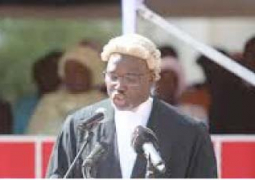The
NHRC says it’s aware of interactions between The Gambia Police Force and 3
Years Jotna Concerned Citizens which, if not properly addressed, may lead to
misunderstanding and disruption of public order.
“Consequently,
on Wednesday 8th January 2020, the Commission initiated a separate dialogue
with both the Inspector General of Police and Executive members of the 3 Years
Jotna Concerned Citizens,” the Commission says in a news release.
“The
meetings were neither supportive, nor dismissive of the demands and concerns of
3 Years Jotna Concerned Citizens, or convened to castigate or admonish the police.
It was a dialogue to hear the concerns of the parties, encourage the nurturing
of peace and order, and emphasize respect for and protection of constitutional
and fundamental human rights by all and sundry.”
Protests,
among other forms of civil engagement, are fundamental features of a
functioning democracy. The Gambia Police Force performs the critical and
challenging role of creating a conducive environment, while maintaining order,
and the protection of people and properties. It should be emphasised that the
State, however, bears the primary obligation to respect, protect and fulfill
the fundamental rights of everyone living within its jurisdiction without
discrimination or any other considerations. Civil society organisations are
encouraged to employ avenues that are governed by the laws of The Gambia and to
act responsibly in their engagements and exercise of fundamental human rights.
The
NHRC urges the government and the populace to draw lessons from the revelations
of the ongoing Truth Reconciliation and Reparations Commission (TRRC) to build
a society that is founded on fundamental rights and freedoms, the rule of law,
constitutionalism and due process.
The
National Human Rights Commission (NHRC) ushers in the New Year with a renewed
commitment to promote and protect human rights in The Gambia. Several issues
relating to and affecting human rights have been and continue to be monitored
by the NHRC. Key concerns include civil society engagement with law enforcement
and respect for the rights guaranteed by the constitution, such as the right to
assembly, freedom of expression and rule of law.
As
our country transitions to a more democratic society, our law enforcement
agencies will be faced with situations which would oblige them to uphold
standards that do not compromise human rights and freedoms, while maintaining
order, security and peace.
Read Other Articles In Article (Archive)
Burglar Convicted
Nov 9, 2009, 12:20 PM


